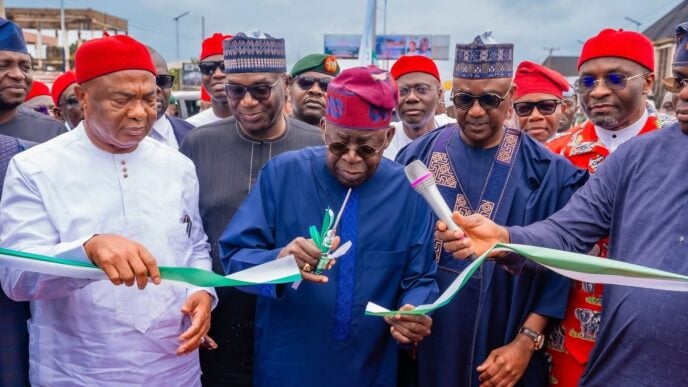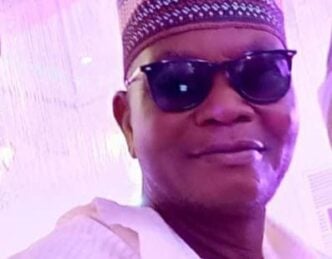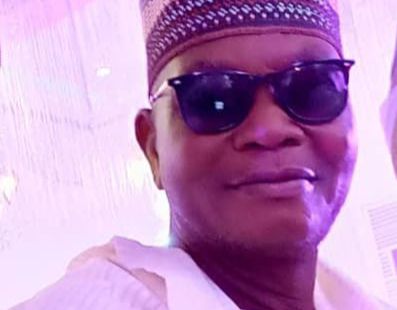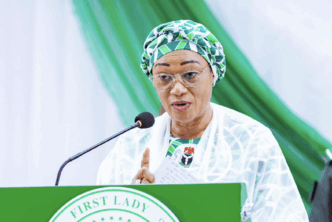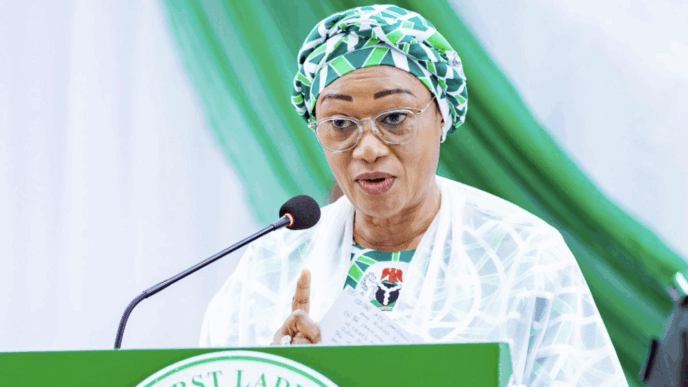When the Sultan of Sokoto, Muhammadu Sa’ad Abubakar, spoke at the public presentation of former Chief of Defence Staff, Gen. Lucky Irabor’s memoir in Abuja on Friday, October 3, his words were meant to calm old fears and clarify long-held misunderstandings.
“I want to correct this wrong notion that non-Muslims hold about jihad,” he said. “Jihad is not for a Muslim to kill a non-Muslim. Jihad means to strive, and in whatever you do in life, you strive to be the best.”
It was, on the surface, a gentle reminder that Islam, like all faiths, has moral and spiritual depths that go beyond violence. Yet, for many Nigerians, especially those in the North and Middle Belt whose histories still bear the scars of conquest, the Sultan’s redefinition of jihad stirred uneasy memories.
One of the first to respond was Gbenro Adegbola, a writer, publisher, educator, and one of Nigeria’s most thoughtful public intellectuals. Known for his calm but piercing moral clarity, Adegbola’s interventions often come without rancour, but always with a quiet insistence on truth.
Advertisement
In a post on X, he wrote, “Before lecturing others on the ‘true meaning’ of jihad, it would help for the Sultan to recall what jihad meant in practice for the so-called ‘pagan’ peoples of the North and Middle Belt. Many of their fathers were killed or sent into slavery by jihadist fighters flying the Sultan’s direct forefathers’ flag. History has already recorded what jihad means in practice. Perhaps humility, honesty, and historical restitution can begin to change the meaning, not high-sounding rhetoric.”
Adegbola’s reflection was not an attack on faith but a plea for historical honesty, a call to remember what the word jihad has meant in practice to those who stood on its receiving end. His words carried the weight of memory, the memory of families and entire communities in the Middle Belt, in Southern Kaduna, in Plateau, Nasarawa, Benue, and Adamawa, who still live with the aftershocks of wars waged long before they were born.
The Sokoto Jihad of the early nineteenth century, led by Uthman dan Fodio, was not merely a campaign of moral reform. For many indigenous communities of the North and Middle Belt, it was a season of terror. Villages were razed, men slaughtered, and women and children sold into slavery, all in the name of purifying belief. While it gave birth to the Sokoto Caliphate, it also left deep cultural and emotional wounds that have never fully healed.
Advertisement
And in our own time, that ancient spirit of conquest, stripped of theology but clothed again in violence, has reappeared in the form of Boko Haram and ISWAP. The language has changed, but the justification sounds chillingly familiar.
Just before dawn on January 3, 2015, the world watched in shock as the Baga massacre unfolded, claiming hundreds, possibly thousands, of lives in what many believed to be the largest single killing in the country by Islamic terrorists. Boko Haram later claimed responsibility for the sickening attack in a message released by its then leader, Abubakar Shekau.
“We killed the people of Baga. We indeed killed them, as our Lord instructed us in His Book,” Shekau said in the 35-minute message, which was obtained by AFP.
One particular case that I shiver with horror whenever I recall, and which I have found impossible to erase from memory, is the Buni Yadi attack of February 25, 2014. In that Yobe town, Boko Haram militants invaded the Federal Government College, a boys’ boarding school, at night, locking the dormitories and setting them ablaze. Some students were burnt alive, others shot as they tried to escape.
Advertisement
At least 59 boys, most of them between the ages of 13 and 18, were ultimately slaughtered in their sleep. The few survivors who crawled out of the inferno later told of friends dying in their arms, murdered simply for seeking education.
Just two months later, in Chibok, Borno State, over 270 schoolgirls were abducted in another Boko Haram raid that shocked the world. Some were rescued after years of captivity, but more than a hundred remain missing to this day, with their lives broken, their families forever waiting.
Just last month, over 60 people were killed in a single night in Bama, Borno State, and thousands have been forced to flee from towns like Kirawa, Gwoza and Banki, also in Borno, in fresh waves of terror.
These horrors are not separate from the historical idea of jihad; they are its distorted descendants. And they are only a few among the countless tragedies Nigerians have suffered and continue to suffer in the hands of those who invoke the same spirit of violence. To redefine jihad today as merely “striving to be the best,” without acknowledging the centuries of pain attached to the word, is to polish a mirror while ignoring the blood on its surface.
Advertisement
Adegbola’s response is a reminder that moral leadership begins with truth. To heal, we must first admit what was done, not by ordinary Muslims, but by those who wielded religion as a sword of power. The Sultan’s words might have been meant to inspire peace, but true peace demands courage, not convenience.
Perhaps one day, jihad will truly mean only spiritual striving. But that day will come not through lofty speeches, but through humility and the courage to face history as it really was.
Advertisement
Ladigbolu is a Lagos-based journalist.
Advertisement
Views expressed by contributors are strictly personal and not of TheCable.

